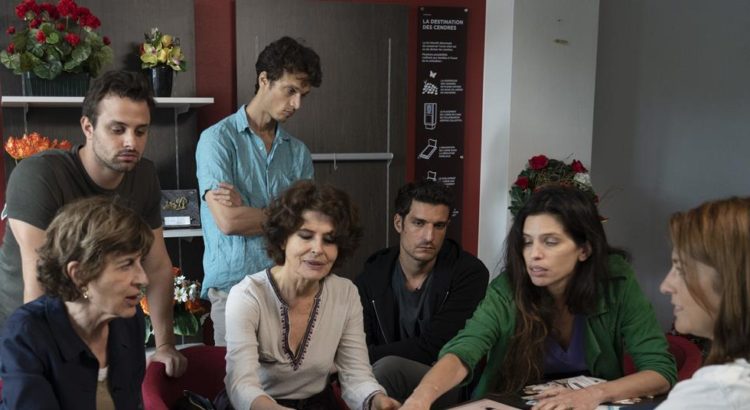Minor spoilers ahead.
In her new film, DNA, French-Algerian director Maïwenn attempts to capture the generational struggle of understanding one’s cultural identity, which here locates itself within the film’s main character, Neige. Neige, alongside her Royal Tenenbaum-sized family, has difficulty coping with the death of her grandfather, an Algerian immigrant who is the unifying head of the entire extended family. His journey from a simple life in Algeria to an academic in France striving for Algerian liberation is the common myth that unites the family. When he dies, Neige is thrown into a—sometimes destructive—mission to discover the significance of her Algerian heritage.
Admittedly, this film is often pretty bland; the almost pointless use of handheld shots and blinding lens flares don’t do much for the viewer other than annoy us, and a good bit of the dysfunctional interplay between family members doesn’t amount to much more than trivial family drama. This is also a story we’ve likely seen some version of before. Whether it be Spike Lee’s Do the Right Thing or a blockbuster hit such as Bend it Like Beckham, the difficulties of mediating between different aspects of one’s cultural background is a subject that has been frequently explored in the 21st century; in an increasingly heterogeneous America, explorations of multicultural identity have become ever more important stories.
But what makes DNA unique, despite its shortcomings, is the structure that Maïwenn gives to Neige’s character arc. In the beginning of the film, Neige doesn’t even feel like a main character. Though the camera may linger on a bit more than the rest of the family, there’s still plenty of screen time for her brothers, as well as the whole troupe in an ensemble. It isn’t until the halfway mark that Neige begins to escape the crowd of her extended family, and the narrative really begins to take an interest with her personal experience with grieving.  In fact, as the film goes on, the rest of her family begin to appear less and less, and by the end we’re watching Neige walk around alone, starve herself, or bounce between appointments at the Algerian embassy to get her Algerian citizenship. Thus, we learn that Neige’s process of getting closer to her Algerian roots is a sort of a sweet irony, that to become a part of the Algerian community she must first retreat back into herself, away from her family and into her own solitude.
In fact, as the film goes on, the rest of her family begin to appear less and less, and by the end we’re watching Neige walk around alone, starve herself, or bounce between appointments at the Algerian embassy to get her Algerian citizenship. Thus, we learn that Neige’s process of getting closer to her Algerian roots is a sort of a sweet irony, that to become a part of the Algerian community she must first retreat back into herself, away from her family and into her own solitude.
The film’s ending finds Neige on a solo trip (possibly even a move?) to Algeria, and it’s apparent that she’s pretty out of place as a French-passing woman in the streets of Algiers. She wanders through the crowded streets like a tourist, often against the flow of traffic. But, even though she’s left the family she’s known her whole life and has presumably become a stranger in Algiers, Maïwenn asks us to remain hopeful that Neige—as well as her viewers—can find a community they can call home: the film’s final shot is Neige in slow-motion, laughing joyously at the Algerian flag fluttering against her back. Her smile is nothing but contagious, and the cut-to-black punctuates Maïwenn’s love letter to the aimless children of immigrants in France.
DNA (2020) is streaming exclusively on Netflix.


